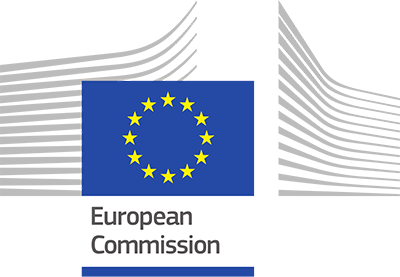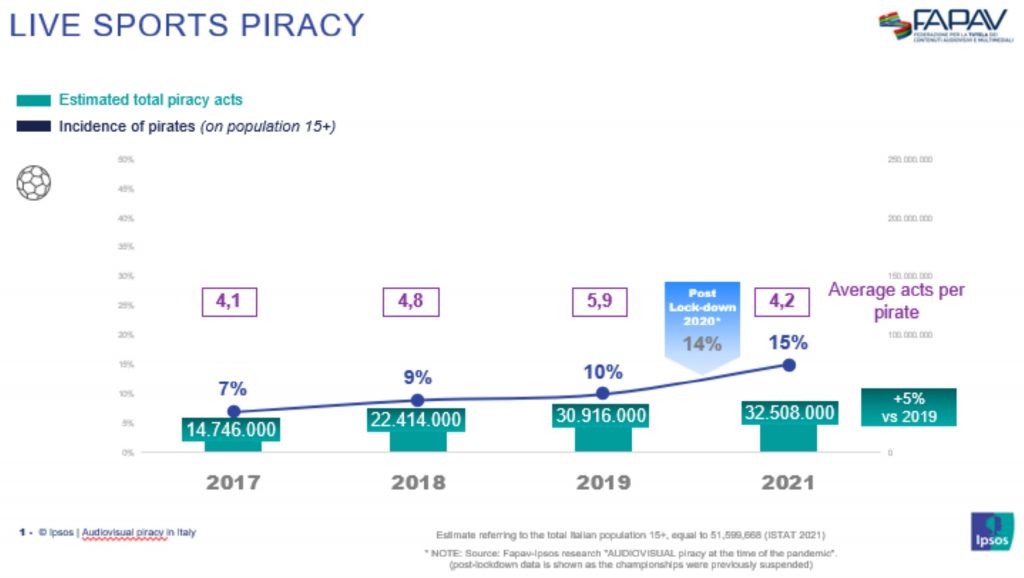 By Steven Hawley, Piracy Monitor. In January, the European Union issued a “Call for Evidence,” requesting input from rights holders and industry groups in a request for consultation toward fighting live streaming piracy with a focus on the theft of live sports programming.
By Steven Hawley, Piracy Monitor. In January, the European Union issued a “Call for Evidence,” requesting input from rights holders and industry groups in a request for consultation toward fighting live streaming piracy with a focus on the theft of live sports programming.
The comment period closed on February 10, with 96 entries submitted by a wide variety of stake-holders and some individuals. Given the volume and quality of the responses, the request was a resounding success. Several themes emerged, including the need for timely responses for take-down requests, escalation processes that are consistent across the EU, dynamic injunctions that follow pirates to any subsequent domains that they may move to after a primary site has been shut down, and better accountability.
Piracy is generally accepted to be trending upward. This chart for piracy in Italy from 2017 through 2021 is a representative sample, saying that 15% of Italian consumers access piracy sources, and that incidents of piracy were up by 5% from 2019 through 2021.

Assured response times
One common sentiment emerged: “We regretfully point to the fact that recently adopted Digital Services Act (DSA) does not ensure notice and takedown mechanism apt to deal with issues of live piracy and infringing streams on a wider scope of intermediaries,” said the submission by the Eastern European broadcast group United Media. “Our experience shows that the reaction time of hosting providers to rightsholder notices related to illegal streaming, in a vast majority of cases, surpasses the duration of the event, which renders such reaction insignificant.
“Illegal streaming of live events has to be met with an effective mechanism for rightsholders to prevent unauthorized use of their content. We believe that the only way to make notice and takedown mechanism effective tool to prevent and respond to illegal streaming, is to clarify the requirements for immediate removal of infringing content before or during the event, as the appropriate legal mechanism,” continued United Media.
Spain’s La Coalicion argues for 30 minute response times, for live events. While that might be adequate for a football game, some sporting events play through much more quickly.
From an Internet service provider’s perspective, Telefonica added that “An effective response would be to clearly define how the notice and action mechanisms should work: direct communication mechanism to the intermediary with access and response channels active 24×7, real-time blocking of access to or removal of unauthorised online content within an immediate timeframe (thirty minutes following a notification by rights holders or a certified “trusted flagger”).”
Dynamic injunctions
Dynamic injunctions allow rightsholders to require Internet service providers to block primary domain name and IP address of piracy websites, and follow the pirates to any subsequent domains that they may move to after a primary site has been shut down. The submission by the Association of Commercial Television and Video on Demand Services in Europe (ACT) notes that Article 8(3) of the EU’s Information Society Directive requires Member States to ensure that rights holders can apply for an injunction against intermediaries whose services are used to infringe copyright – but because different approaches are used by EU member states, enforcement can get bogged down in process. ACT recommends that “the most effective way to combat piracy of live content is to combine (notice and takedown) notices and actions with dynamic injunctions as they are complementary tools.”
Lack of accountability
ACT also found a clause of the Digital Services Act (Recital 51) to be “very problematic as it allows hosting providers who claim to not have the operational or technical capacity to act, to simply notify the notice sender, without any subsequent action required on their part. This creates yet another loophole allowing for more uncertainties for live content.”
There’s always a spoiler
The Stockholm Pirate Party (Sweden) said (in their full entry) “Personal streaming of live events is a natural and useful part of the new free non commercial global exchange that the Internet introduced. This is a new, basically cultural phenomenon, not a market related one. A pity that the EU didn’t and doesn’t have culture as a prioritized topic, a lens through which you could discover the new Global Culture to protect, not go hunting private persons for wanting to show what they see to their friends. However, not wanted commercial streaming is a different thing, that can be restricted, and forced to make deals.”
The submissions
All of the following are click-able to the submissions themselves. They are not all here, as about a dozen of the entries were from individuals:
Sports Leagues, Programmers and Organizations: FIFA (Switzerland), Ligue de Football Professionnel (France), APPS Association pour la Protection des Programmes Sportifs (France), Sport TV (Portugal), UEFA, Grup Mediapro (Spain), Deutsche Fußball Liga, International Olympic Committee, beIN Sports France, European Leagues, Liga nacional de fútbol profesional (Spain), Ligova fotbalova asociace – Czech Football League (Czechia), Deutscher Fussball-Bund (Germany), Lega Nazionale Professionisti Serie A (Italy), Fédération Française de Tennis (France), League of Ireland (Ireland), Austrian Football League (Austria), BULGARIAN PROFESSIONAL FOOTBALL LEAGUE (Bulgaria),
Industry organizations: FAPAV Federazione per la Tutela delle Industrie Audiovisive e Multimediali (Italy), LeakID (France), European VOD Coalition, Associação para a Defesa do Ciberespaço (Portugal), News Media Coalition (Belgium), News Media Europe, EUROCINEMA (Belgium), International Union of Cinemas (Belgium), VAP – Verein Anti-Piraterie der Film- und Videobranche (Austria), Asociace komerčních televizí, z.s. (CZ) (Czechia), Association of Commercial Television and Video on Demand Services in Europe (ACT) (Belgium), EBU-UER (Belgium), NLconnect (Netherlands), Stowarzyszenie Sygnał (Poland), La Coalición (Spain), Danish Rights Alliance (Denmark), FEVIP (Portugal), Computer & Communications Industry Association’s (CCIA Europe) (Belgium), Audiovisual Anti-Piracy Alliance (United Kingdom), Stichting BREIN (Netherlands),
Video service providers: NOS Communições SA (Portugal), Sky Group (Belgium), CANAL+ Group (France), Bouygues Europe (Representation of the Bouygues Group in Brussels) (France), Telefonica (Spain), Hellenic Telecommunications Organisation S.A. (Greece), Cyfrowy Polsat S.A. (Poland),
Broadcasters and TV programmers: BBC, MFE-MEDIAFOREUROPE N.V. – Mediaset (Italy), DAZN Group Limited (United Kingdom), Central European Media Enterprises (CME) (Czechia),
Performing Arts: AEPO-ARTIS (Belgium), Pearle* – Live Performance Europe (Belgium),
Telecommunications: Federation Française des Télécoms, Association of Electronic Communications Operators of Portugal (APRITEL), GSMA Europe (Belgium), O2 Czech Republic (Czechia)
Copyright advocates: IFPI (Switzerland), CreativityWorks! (Belgium), IFPI Denmark (Denmark), Copyright Information and Anti-Piracy Centre (Finland), Live Content Coalition (Belgium), The Sports Rights Owners Coalition (SROC) Belgium, Föreningen Svensk Elitfotboll (Sweden), Hellenic Copyright Organization (Greece),
Internet service providers: Cloudflare (United States), WindTre S.p.A. (Italy), Open-Xchange AG (Germany), ISPA – Internet Service Providers Austria (Austria), European Internet Service Providers Association – EuroISPA (Belgium),
Government regulators: Ministerio de Cultura y Deporte (Spain), The Radio and Television Commission of Lithuania (Lithuania), AGCOM – Autorità per le garanzie nelle comunicazioni (Italy),
Consumer advocates: DECO (Portugal),
Further reading:
Feedback collected: Combating online piracy of live content. 96 entries. Web site, Accessed Feb 15, 2023. European Commission
Combating online piracy of live content. Web site. Accessed Feb 15, 2023. European Commission
Why it matters
Estimates as to the scope of the piracy problem vary widely, but the inconsistencies should not stand in the way of the fact that piracy is real and it’s not going away.
For example: A study released by AAPA in December 2022 said that there €1.06 billion of unlawful revenue was generated by copyright infringing IPTV providers in Europe in 2021, and that pay TV providers EU-wide lost an estimated €3.21 billion, while a January 2023 report by VAUNET that says “live TV piracy largely replaces the use of legal TV services,” in Germany alone; and that the main live TV genres watched illegally are drama, sports, documentaries and information. As a result, the media corporations concerned lose annual revenue totaling €1.1 billion. Separately, DAZN estimates that “our European business suffered losses of €188m a month in 2021 alone, had these users accessed the content through a DAZN subscription,” which would equate to well over €2 billion for the year.
Surely Germany alone can’t account for fully a third of all EU revenue-loss due to piracy, nor DAZN’s losses be even higher than Germany’s. But these comparisons are apples-and-oranges: The German estimate is for the loss of streaming revenue for live TV, while AAPA’s is for pay TV (live or otherwise). And does DAZN’s piracy level (which is the sum of live and on-demand) equal that of major European countries?
With its initiative on piracy of live content, the European Commission aims to offer a toolbox to combat illegal streaming of live events, in particular sport events. Building on relevant EU legislative instruments, the Commission will encourage Member States and private parties to use the tools available in EU law to tackle illegal online transmission of live content more efficiently.












